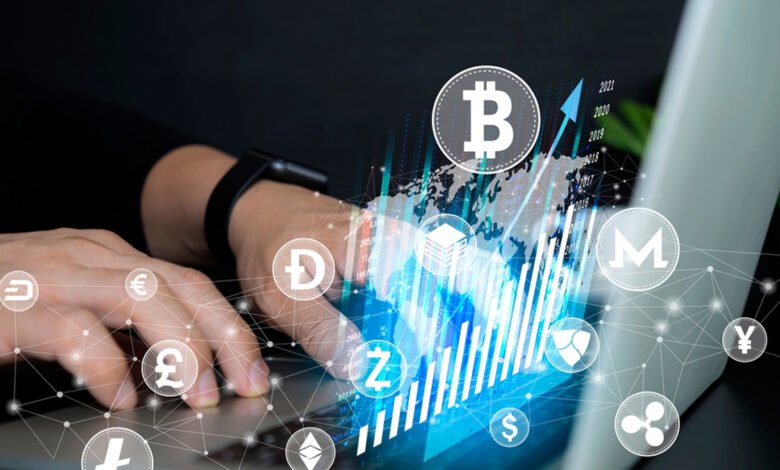The Ultimate Guide to Altcoins

What Are Altcoins? Everything You Need to Know
If you’ve been exploring the world of cryptocurrency, you’ve probably heard the term “altcoin” tossed around. While Bitcoin continues to lead the pack, altcoins—short for “alternative coins”—are rapidly growing in popularity. But what exactly are they?
At its core, an altcoin is any cryptocurrency that isn’t Bitcoin. While Bitcoin was the first to emerge, altcoins have quickly carved out their own space in the crypto world. These coins are often created to solve specific problems or offer improvements, like faster transactions or more privacy features.
Altcoins come in many different forms, such as:
- Stablecoins: Pegged to something stable, like the US dollar (think USDT, USDC), making them less volatile.
- Utility Tokens: These coins power decentralized applications (DApps) and platforms, like Ethereum (ETH) and Solana (SOL).
- Meme Coins: Born out of internet humor, but some (like Dogecoin and Shiba Inu) have gained real traction.
- Security Tokens: These represent real-world assets, such as equity or property.
- Privacy Coins: Focused on providing anonymity for transactions, like Monero and Zcash.
Each of these types brings something new to the table, making the altcoin market an exciting and diverse space for investors.
Why Should You Consider Investing in Altcoins?
Altcoins might seem like the underdogs compared to Bitcoin, but they offer some serious potential. Here’s why many investors are turning their attention to these coins:
1. Huge Growth Potential
While Bitcoin may be the biggest, many altcoins have seen incredible growth. Take Ethereum (ETH) for example—it started below $1 and is now worth thousands. Similarly, coins like Solana (SOL) and Cardano (ADA) have gained a lot of attention thanks to their growing communities and technological advancements.
2. Better Technology
Bitcoin’s blockchain is secure but can be pretty slow. Some altcoins, like Solana and Avalanche (AVAX), have built faster, more scalable blockchains that support things like smart contracts and decentralized apps. This makes them an appealing option for the future.
3. Diversification
Bitcoin isn’t the only game in town. By adding a mix of altcoins to your portfolio, you can reduce your risk and increase your chances of tapping into the next big thing in the crypto world.
4. Exciting Sectors: DeFi, NFTs, and the Metaverse
Altcoins are powering some of the most exciting parts of the crypto ecosystem:
- DeFi (Decentralized Finance): Platforms like Aave and Uniswap are changing how we think about banking by letting people lend, borrow, and trade without middlemen.
- NFTs: Ethereum and Solana are at the heart of the booming NFT world, where people buy and sell unique digital assets.
- Metaverse and Gaming: Altcoins like Sandbox (SAND) and Axie Infinity (AXS) are creating virtual worlds and gaming economies that are quickly gaining popularity.
By investing in the right altcoins, you’re not just betting on cryptocurrency—you’re diving into these new and exciting industries.
Which Altcoins Should You Look At in 2024?
There are thousands of altcoins out there, and it can be overwhelming to figure out where to put your money. Here are a few that are worth keeping an eye on in 2024:
1. Ethereum (ETH) – The Smart Contract Powerhouse
Ethereum is the second-largest cryptocurrency for a reason. It’s the backbone of many DeFi projects, NFTs, and DApps. With Ethereum 2.0 upgrades on the horizon, it’s only going to get faster and more efficient.
- Market Cap: Over $300 billion
- Use Cases: Smart contracts, DeFi, NFTs
- Why It’s Worth It: Strong developer community, widespread adoption, and major upgrades coming soon.
2. Solana (SOL) – The Speedster
Solana is all about fast transactions at low costs, making it an excellent choice for DeFi and gaming. It’s often touted as Ethereum’s biggest competitor in terms of speed and cost efficiency.
- Market Cap: Over $30 billion
- Use Cases: DeFi, NFTs, gaming
- Why It’s Worth It: Fast-growing ecosystem with strong developer support.
3. Cardano (ADA) – The Science-Backed Blockchain
Cardano is known for taking a slow, research-driven approach to blockchain development. Its focus on scalability and sustainability makes it a strong contender to Ethereum in the smart contract space.
- Market Cap: Over $15 billion
- Use Cases: Smart contracts, DeFi, governance
- Why It’s Worth It: Backed by rigorous academic research, energy-efficient design.
4. Polygon (MATIC) – Ethereum’s Scaling Solution
Polygon is a Layer-2 solution that makes Ethereum faster and cheaper to use. As Ethereum remains the dominant blockchain, Polygon’s role in scaling it has made it a go-to for many projects.
- Market Cap: Over $10 billion
- Use Cases: Layer-2 scaling, DeFi, gaming
- Why It’s Worth It: Popular among developers, growing ecosystem.
5. Chainlink (LINK) – The Bridge Between Smart Contracts and the Real World
Chainlink connects smart contracts with real-world data, enabling them to interact with external systems like APIs or payment networks. It’s a key player in the DeFi space.
- Market Cap: Over $8 billion
- Use Cases: Oracles, smart contracts
- Why It’s Worth It: Vital to the DeFi sector, trusted technology.
6. Avalanche (AVAX) – A High-Speed Blockchain Alternative
Avalanche promises fast transaction speeds and low fees, making it an attractive alternative to Ethereum. It’s rapidly gaining traction in the DeFi space.
- Market Cap: Over $12 billion
- Use Cases: Smart contracts, DeFi, enterprise adoption
- Why It’s Worth It: Highly scalable and cost-effective.
7. Polkadot (DOT) – Blockchain Interoperability
Polkadot’s main goal is to make it easier for different blockchains to communicate with each other. It’s a promising project for the future of Web3 and decentralized applications.
- Market Cap: Over $10 billion
- Use Cases: Blockchain interoperability
- Why It’s Worth It: Interoperability, future-proof tech.
How to Buy Altcoins
Ready to dive into altcoins? Here’s how you can get started:
- Pick a Reliable Exchange – Choose a trusted platform like Binance, Coinbase, or BingX.
- Create an Account – Sign up, verify your identity, and secure your account.
- Deposit Funds – Fund your account with either fiat currency or crypto.
- Buy Your Altcoins – Search for your preferred altcoin and hit buy.
- Secure Your Assets – Store your altcoins in a safe wallet to keep them secure.
Why Choose BingX for Buying Altcoins?
When you’re ready to start trading altcoins, choosing the right exchange is key. BingX stands out with its easy-to-use interface, low fees, and a wide selection of altcoins. Whether you’re just starting out or already a seasoned trader, BingX offers advanced tools, fast transactions, and 24/7 support to make your crypto journey smooth and secure.
The Risks of Investing in Altcoins
Like any investment, altcoins come with their own risks:
- Volatility: Prices can swing wildly, so expect ups and downs.
- Scams and Fraud: The crypto space has some bad actors, so always do your research.
- Regulatory Risks: Governments may tighten regulations, which could impact the market.
Always do your homework, invest wisely, and never risk more than you can afford to lose.
Final Thoughts
The world of altcoins is full of opportunity—if you’re willing to do the research and take on the risks. Whether you’re eyeing Ethereum, exploring Solana, or diving into Polkadot, there’s a whole world of innovation out there. By diversifying into altcoins, you’re not just investing in currency—you’re betting on the future of technology.
Stay informed, be patient, and always make decisions that align with your financial goals. The cryptocurrency landscape evolves quickly, and those who stay ahead of the trends have the best chance to succeed.
Read Also: Cryptocurrency The Future of Money








